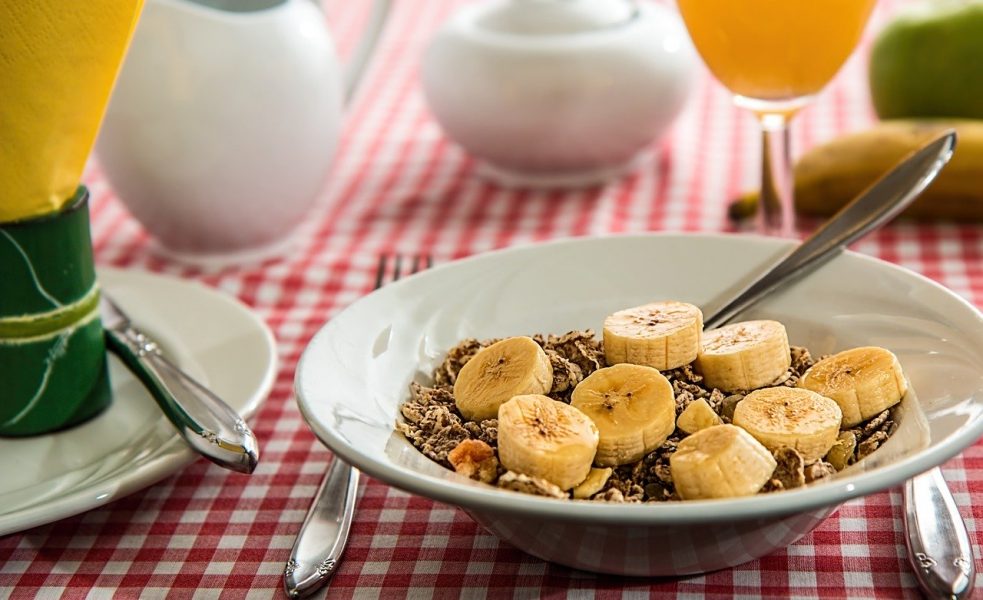Every year, around half of the entire adult population of America embark on a weight loss journey, whether for health or aesthetics. Of course, not everyone succeeds –more than half the people who start on a new diet end up quitting after the first couple of months.
And it can be frustrating to lose weight, especially if you’re not hitting your weight loss goals as fast as you think you should be. Save for some extreme workout regimens, unhealthy diet fads, and questionable ‘weight loss’ pills (like Phen375 or Sarah’s Discovery), the only real healthy plan to lose weight is a diet that focuses on whole foods (that is, avoiding processed foods), a reduction of calorie consumption (i.e. going on a calorie deficit), and eating more vegetables.
Upsetting, I know, but really, a balanced diet of good proteins and lots of veggies is going to do your body wonders, both in terms of weight loss and overall health. So put away that pop tart (no matter how difficult that maybe), and try to follow just one of these health plans to lose weight.
Intermittent Fasting
Intermittent Fasting, also known as IF, has been one of the hottest weight-loss trends of the decade. People swear that they lost 30lbs. in as little as 30 days while following a strict IF program, and fortunately, the science backs it up.
For the uninitiated, intermittent fasting is a diet program that involves cycling through different periods of fasting and eating. This usually involves a prolonged period of fasting (called, unsurprisingly, a fast period), followed by a small window of time where people eat their caloric intake for the day.
There are different variations of IF, each one involving a different time ratio between fasting and eating. In general, the most common are the 16/8 and the 5:2. 16/8 is an IF method that involves going on a 16 hour fast (absolutely NO calories of any kind), followed by an 8-hour window where you can eat.
The 5:2 method, on the other hand, is a different type of intermittent fasting that involves going on a calorie deficit of 500 calories for 2 non-consecutive days per week. On the other 5 days, people can either do the 16/8 method or just simply limit their caloric intake to a small calorie deficit.
IF adherents swear by the diets weight-loss powers, and it seems that science has their back: in a study done by medical researchers, they found that intermittent fasting was directly responsible for helping people lose around 3% to 8% of their body weight over a span of 3 to 24 weeks, while reducing waist circumference by up to 7% over the same period of time. Not exactly the ‘lose 30lbs in 30 days’ diet plan people want, but that’s still a very significant reduction in weight.
While scientists aren’t 100% sure about why IF is effective, they do believe that it has something to do with cyclical fasting’s ability to regulate our metabolism in such a way that it burns fat faster while retaining muscle mass (which also explains why IF is so popular with body builders).
A couple of downsides, however: IF isn’t suitable for diabetics and other people who are sensitive to sudden drops in blood sugar levels. Some people also make the mistake of bingeing on junk food and other unhealthy snacks during their 8-hour window of eating. To make the best out of your IF program, always make sure that you’re eating whole foods and balanced meals in your eating window.
Keto Diet
An off-shoot of the now-debunked Atkin’s Diet, the Keto Diet refers to a dietary program that restricts a person’s intake of carbohydrates. This encourages the body to go into a metabolic state called Ketosis. A person enters Ketosis when their body doesn’t have enough carbs that can be converted into glucose to burn for energy, forcing it to burn fat instead. When a person enters Ketosis, their liver takes fat cells and turns them into Ketones, which then metabolizes into usable energy.
While this might sound dangerous, Ketosis is actually a naturally-occurring metabolic state, usually observed in diabetics (due to the lack of glucose in their bodies) and, oddly enough, newborns and neonatal babies.
In a Ketogenic Diet, virtually all forms of sugar are banned, as well as most forms of carbohydrates. Most Keto Diet programs will restrict daily carbohydrate intake to around 20g or less, a stark reduction compared to 250 to 350 grams of carbs consumed daily by the average American.
For your body to have energy, the Keto Diet replaces glucose with fat, with most Keto Diet programs requiring around 60% of a person’s caloric intake to be comprised of fat, with the other 30% being devoted to protein (to maintain muscle mass), and the remaining 10% (ideally less) being made up of carbohydrates.
A lot of Keto Diet adherents report losing around 20 to 30lbs in 30 days, with some even combining it with intermittent fasting. The science backs it up: in a study involving obese patients going on a 24-week Ketogenic Diet, researchers found that the diet helped patients drastically and significantly reduce both body weight and body mass index, while also significantly reducing ‘bad’ LDL cholesterol. The diet also helped the patients regulate their blood glucose levels, a huge boon to any weight loss attempt.
Of course, too much of a good thing can be bad: while the diet is supposed to be high in fat, this doesn’t mean you can splurge on bacon. As much as possible, people on a Keto Diet should get their fats from healthy sources like avocados, nuts, chia seeds, salmon, eggs, and olive oil, among other things. Try to limit your cheese, cream, and butter intake: while these are good sources of fat, they are processed foods and might contain some undesirable LDL cholesterols.
But the worst thing a Keto Diet can do to you is, put simply, kill you: having extremely high levels of ketones in the body can lead to a condition called ketoacidosis, wherein a person’s blood becomes too acidic to be an effective carrier of oxygen. Left unchecked, ketoacidosis can be fatal. It’s pretty rare, but just to be safe, consult with a doctor before embarking on a keto diet.
Paleo Diet
As the name implies, the Paleo Diet is a dietary program that tries, as much as possible, to follow the same eating habits as our Paleolithic ancestors. Originators of the Paleo Diet believe that modern foods and modern agricultural techniques are directly responsible for most of the diseases and sicknesses we encounter today, as they believe that humans are “genetically mismatched” to the diet we follow in the modern world.
To counter this, Paleo Diet followers believe in going back to the most ‘natural’ diet our species had: that of our hunter-gatherer ancestors who lived prior to the invention of farming and agriculture. This means that all forms of farmed products –like grains, legumes, and starchy vegetables –as well as dairy products like cheese and milk are banned from the diet, as these can cause complications within us.
The Paleo Diet advocates eating whole, unprocessed foods including leafy greens and some root vegetables, lean meat, fish, nut oils, seeds, and fruit. While the goal of the Paleo Diet is to live a more natural and holistic way of life, science says that it’s also a healthy plan to lose weight: randomized clinical studies showed that the Paleo Diet was highly effective in:
- Improved Glucose tolerance
- Appetite Management
- Blood pressure regulation
- Lower triglycerides in the body
All of which contribute to an improved metabolism which, ultimately, leads to drastic weight loss. Maybe not as drastic as losing 30lbs in 30 days, but it does lead to generally healthier physical conditions.
Of course, it does have its downsides: some scientists question the underlying hypothesis of the Paleo Diet, citing that dietary changes were a very natural and very necessary step in the evolutionary process of all creatures. In fact, scientists argue that early humans were eating wild grains well before the Paleolithic era, which means that Paleo Man already had genetic code that would have helped them breakdown starch.
So, how does Paleo Diet help in weight loss? Scientists believe that it’s less about the ‘caveman’ nature of the diet, but rather, the diet’s focus on whole foods. Which, at the end of the day, is still very good for you.



